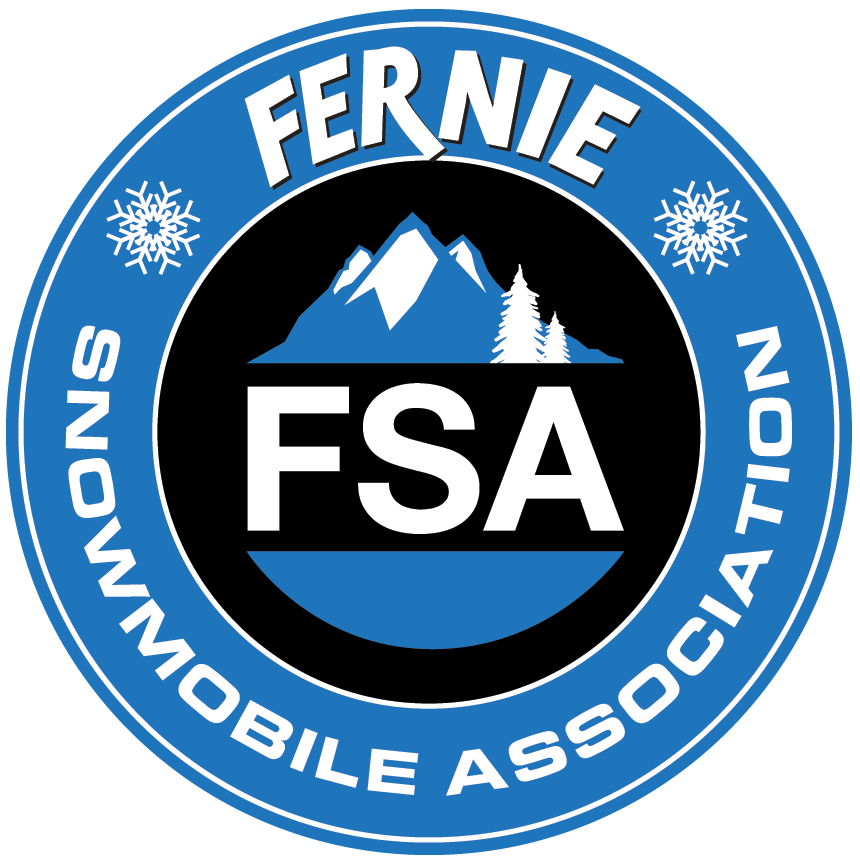FSA Collaborates with Partners to Mitigate Impact of Unexpected 'Notch' Trail Closure in Morrissey Area
Fernie, BC - September 2024 — The Fernie Snowmobile Association (FSA) has been collaborating with TC Energy over the past two years to minimize the impact of their West Path Delivery Program, a natural gas pipeline expansion project, on snowmobile recreation in the Elk Valley. This project is critical to meeting the growing demand for natural gas in southwest Alberta, southern British Columbia, and North American markets, with supplies produced in Western Canada.
In August 2024, the FSA was informed of a sudden and unexpected closure of an important public recreation route in the Morrissey area. The closure includes the deactivation of "The Notch," a trail long used by snowmobilers and other outdoor enthusiasts alongside the pipeline right of way. Under the BC Motor Vehicle Prohibition Regulations, this trail has been an approved motor vehicle route in the Upper Flathead Motor Vehicle Closure Area (MVCA), provided users stay on the hardened trail surface. In winter, an exemption allows snowmobiles to travel off-trail during snowbound months.
This closure is due to a Fisheries Act Authorization (FAA) issued by the federal Department of Fisheries and Oceans (DFO) to TC Energy’s Foothills Pipeline division. The FAA mandates the reclamation of stream crossings along the pipeline right-of-way to prevent sediment from entering streams that serve as critical habitat for the Westslope Cutthroat Trout, a species of special concern under Canada’s Species at Risk Act (SARA).
To comply with the FAA, TC Energy has blocked access to the trail with boulders and logs. Fifteen locations along the pipeline have been identified for habitat reclamation, with the goal of preserving water quality and protecting the trout's sensitive habitat after the significant disturbances caused by the pipeline work as well as limited third party usage.
Impact on Snowmobile Recreation
Since learning of the closure, the FSA has worked with TC Energy and other partners to assess the potential impacts on public access during the winter season. Currently, there are no changes expected to the approved snowmobile access during snowbound months. However, due to the deactivation work, riders may need to wait for higher snow accumulation before safely accessing the area. Adequate snow cover will be required to safely pass over creeks, seedlings, and newly placed debris. This follows the FSA's standard practice of waiting for sufficient natural snow accumulation to create snow bridges and cover sensitive terrain, though an additional 30 to 100 cm of snow may be needed in this case.
Looking to the Future: Summer Recreation
There is optimism for summer recreation in the area. TC Energy's Foothills division plans to seek approval from the DFO to install Off-Highway Vehicle (OHV) crossings—also known as hardened ford crossings—at select locations. These crossings would allow for single-point OHV access while protecting the reclaimed habitat. If approved, the crossings could be constructed in the summer or fall of 2025.
In a statement, TC Energy shared:
"We recognize the importance of access for off-highway vehicles and apologize for the delay in communication about crossing restrictions. Our goal is to work with the community and land-user groups to establish safe crossing locations that minimize habitat disruption as much as possible."
Looking Ahead
While the closure presents a short-term disruption to public recreation, the FSA sees this as an opportunity for a positive long-term outcome. Our priority is to support ongoing efforts to restore and protect the environment following the impacts of industrial activity in the area. We are committed to working closely with TC Energy, the DFO, and other partners to ensure the successful rehabilitation of the region's natural landscape.
Once this vital environmental work is complete, the FSA looks forward to collaborating with partners to restore a sustainable, environmentally responsible recreation trail. Our goal is to balance environmental protection with continued public access, ensuring that snowmobile and other recreation use can proceed safely and responsibly.
This situation underscores the importance of collaboration between industry, outdoor recreation groups, First Nations, and government agencies in achieving shared goals. The FSA remains dedicated to keeping our members informed as progress continues and to advocating for the long-term preservation and enjoyment of this valued recreation area.
About the Fernie Snowmobile Association
Since 1990, the Fernie Snowmobile Association (FSA) has been the voice for organized snowmobiling in the Elk Valley. Each winter, Fernie welcomes over 15,000 snowmobile trail users, contributing $11.6 million annually to the local economy. As a not-for-profit organization, the FSA works closely with government, First Nations, and other partners to protect respectful and sustainable snowmobiling opportunities, offering vibrant and diverse recreational experiences for both residents and visitors.


